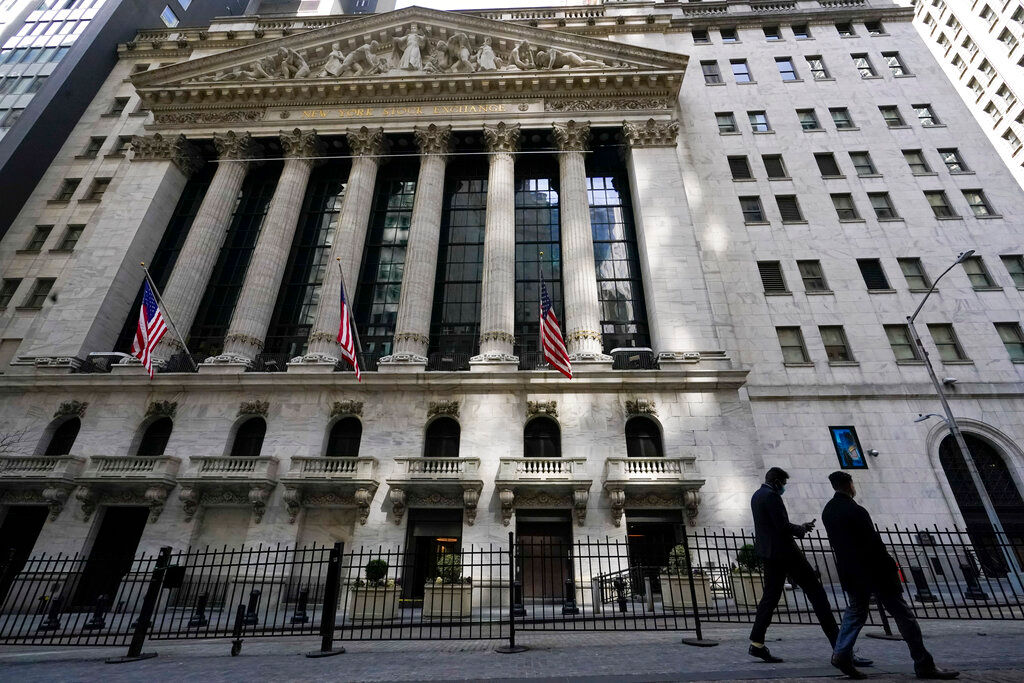Technology stocks are leading another decline on Wall Street in early trading Friday and every major index is on track for a weekly loss.
The S&P 500 fell 1.4% as of 10:22 a.m. Eastern. Roughly 85% of stocks within the benchmark index were lower. The Dow Jones Industrial Average fell 570 points, or 1.6%, to 35,322 and the Nasdaq fell 1.2%.
Also read: Antitrust body CCI suspends Amazon’s deal with Future Group
After pushing the S&P 500 to a record high last week, investors have been taking money off the table as the Federal Reserve moves to dial back stimulus and fight inflation. Both the S&P 500 and the Nasdaq are headed for their third weekly drop in the last four.
Technology stocks have been leading the losses as Wall Street prepares for rising interest rates. Microsoft fell 2.2% and Adobe shed 3.3%.
Large technology companies often have lofty valuations based on assumptions about their profitability going far into the future. Those valuations are typically more acceptable to investors when interest rates remain low, but become less desirable as interest rates rise.
Also read: Tiktok’s take on threatening trends; No proof of real threat found
The Federal Reserve has signaled plans to speed up its reduction in monthly bond purchases that have helped keep interest rates low. The shift in policy sets the stage for the Fed to begin raising rates sometime next year.
Bond yields fell. The yield on the 10-year Treasury slipped to 1.38% from 1.42% late Thursday. That weighed down banks, which rely on higher yields to charge more lucrative interest on loans. JPMorgan Chase fell 2.9%.
Losses were broad throughout other sectors. A wide range of retailers, communications companies and industrial firms also fell.
Sectors considered less risky held up better than the rest of the market. Losses weren’t as severe for real estate companies and utilities.
European markets were lower, and Asian markets closed mostly lower overnight.
Also read: Shooting, bombing ‘threats’ on TikTok trigger security alarm in US schools
Wall Street is also gauging the potential impact from surging coronavirus cases with the new omicron variant. Public health experts in Europe have been urging greater precautions amid the latest wave.
Investors are also considering heightened tensions between China and U.S. amid an already strained global supply chain. In the U.S., Congress approved legislation barring all imports from China’s Xinjiang region unless businesses can prove they were produced without forced labor.







